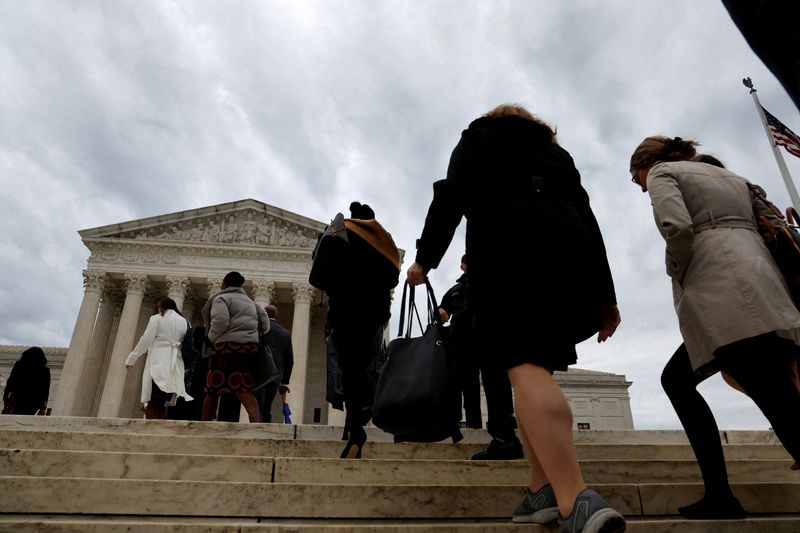By Blake Brittain
WASHINGTON (Reuters) -The U.S. Supreme Court on Tuesday turned away a patent dispute between labeling company Avery Dennison Corp (NYSE:AVY) and ADASA Inc that would have given it a chance to clarify a standard that critics have said has sown confusion about what inventions can be legally protected and led to cancellations of valid patents.
The justices declined to hear Avery Dennison's appeal of a lower court's decision upholding a patent involving tracking tags that was the subject of a $62.4 million infringement award won by ADASA in a lawsuit brought in Oregon.
The justices have not explored the question of patent eligibility since 2014, rebuffing various requests to take up the issue.
Eugene, Oregon-based ADASA, which owns radio frequency identification (RFID) patents, sued Mentor, Ohio-based Avery Dennison in 2017. ADASA claimed that Avery Dennison's RFID transponders infringed one of its patents.
A jury awarded ADASA $26.6 million in infringement damages in 2021, with a judge subsequently increasing the amount to $62.4 million.
The patent-focused U.S. Court of Appeals for the Federal Circuit last year affirmed that ADASA's patent was valid, rejecting Avery Dennison's argument that it covered a patent-ineligible abstract idea. The Federal Circuit also vacated part of the award, and sent the case back for a jury to reconsider if the patent was invalid on other grounds.
Avery Dennison appealed to the Supreme Court, arguing in its petition to the justices that its patent covers the "simple concept of treating one long serial number as the combination of two shorter numbers, and then directing that blocks of RFID tags all start with the same shorter number."
The company added that "no issue in patent law today is more significant - or more divisive" than patent eligibility.

The Supreme Court last addressed the concept in a 2014 case called Alice Corp v. CLS Bank International that helped establish a two-part test. The test requires courts to determine if an invention involves an unpatentable abstract idea, natural phenomenon or law of nature - and if so, whether it includes an inventive concept.
The justices turned away another closely watched patent eligibility case last year involving an American Axle (NYSE:AXL) & Manufacturing Inc driveshaft patent. President Joe Biden's administration had encouraged the Supreme Court to hear that case as well as two others that the justices chose not to take up this term.